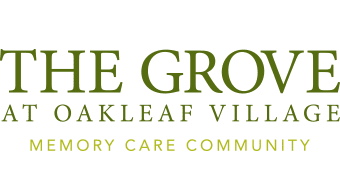4 Key Dementia Symptoms Every Adult Child Should Watch For in a Parent
As we age, it’s only natural that our mental abilities begin to change. We may…
Forget where we’ve misplaced our glasses.
Double-book appointments.
Have trouble recalling a neighbor’s name.
With a lifetime full of memories that span several decades, it’s no wonder that our minds eventually lose their sharpness.
However, at what point are these occurrences part of a bigger, more serious picture?
The older we get, the more important it is to be aware of dementia symptoms.
If you’re the son or daughter of an aging parent, it’s advisable to study up on these symptoms in order to watch for and identify them.
The sooner a diagnosis is provided, the sooner you can make plans for the care your parent will require.
Here are four common dementia symptoms to watch for…
#1: Difficulty finding the right words
Perhaps your mother was once a writer or English teacher and has always had a way with words.
One day you realize that she’s experiencing difficulty choosing or recalling the right word to adequately express a thought.
If you notice that having a conversation with your loved one has become increasingly difficult, it could be a sign that dementia has affected her ability to communicate.
Pay attention to changes in linguistic ability, and schedule an appointment with a doctor sooner rather than later.
#2: Mood changes
Imagine the following scenario.
Your father has always been on the quieter and shyer side.
You know he’d rather play chess online than attend the local neighborhood chess club.
However, you notice that he’s recently become animated, talkative, and outgoing.
You may think this shift in personality is odd, but rationalize that his newfound confidence and extroverted nature could only be a good thing.
Of course, it’s never too late to come out of one’s shell, but oftentimes, a rapid change can be cause for concern.
Changes in mood are common with dementia–and making the transition from shy to outgoing is one of the more common indicators as dementia brings about a diminished sense of judgment.
Additionally, depression is also a common early symptom of dementia.
Therefore, if you notice these personality changes in your parent, it may mean a visit to the doctor is in order.
#3: Difficulty accomplishing normal tasks
From remembering what order to put on clothes to recalling how to operate a stove, there are certain daily tasks that we rarely have to think twice about.
However, people living with dementia often experience difficulty completing everyday tasks that once came easy to them.
Specifically, the difficulty lies in remembering the sequence and order of steps involved in these tasks.
Even before your mother or father begins to struggle with simple tasks, you may notice that he or she experiences difficulty completing more advanced tasks, such as balancing a checkbook or learning to follow new routines.
#4: A diminished sense of direction
Let’s say that your father fails to recognize the building for the doctor’s office he’s visited regularly for over 30 years.
Or your mother forgets the route she’s always walked to visit her best friend who lives only a few blocks away.
As Healthline describes, with the onset of dementia, one’s sense of direction and spatial orientation begins to deteriorate.
Recognizing these symptoms and others is important in order to get a diagnosis and subsequent appropriate care for your mother or father.
When it comes to selecting appropriate care, many families find that making the move to a memory care community sooner rather than later improves the quality of life and safety for their loved one.
When it comes to memory care, The Grove at Oakleaf Village is in a league of our own.
Discover the difference today–contact us to schedule a tour of our Toledo community…or explore our Columbus location opening in the summer of 2018.
Discover what we can provide for your loved one living with dementia today!



